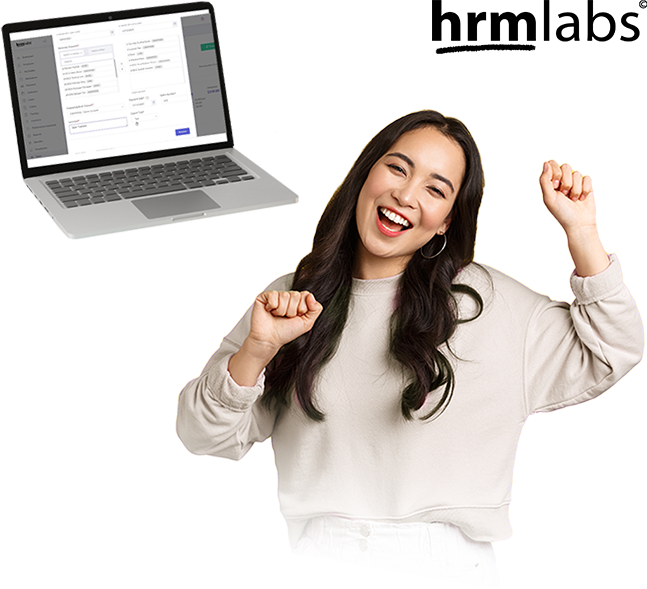As Generation Z (born between 1997 and 2012) makes its grand entrance into the workforce, they carry with them a distinctive blend of expectations, values, and talents that are poised to revolutionize the professional landscape. This trailblazing generation is transforming the very fabric of the workplace, making it imperative for organizations to not only comprehend but also embrace these paradigm shifts.
In this captivating exploration, we will delve into the multifaceted characteristics of Gen Z, the generation gap that permeates the workplace, and the innovative strategies businesses can employ to bridge this chasm, ultimately fostering a more inclusive, dynamic, and thriving work environment.
Understanding Gen Z: Traits and Expectations
Deloitte unveils that Gen Z’ers, the true digital natives, have been steeped in technology from their earliest years. Endowing them with unparalleled multitasking prowess and an instinctive capacity for adopting state-of-the-art tools and platforms. These young trailblazers hold dear the values of flexibility, autonomy, and a well-balanced work-life equilibrium.
Furthermore, Gen Z professionals place significant importance on diversity and inclusion, seeking out workplaces that not only advocate for but also actively embody these fundamental principles. Their inquisitive and straightforward nature, drives them to constantly learn and stay updated with the latest information. This generation’s unique characteristics demand that organizations adapt their people policies and practices to effectively engage and retain this emerging workforce
Challenges in the Workplace: The Generation Gap
The New York Post poll reveals that Gen Z is often perceived as the most challenging generation to work with. This perception may arise from the differences in communication styles, work habits, and expectations between older and younger generations. For instance, Gen Z’s preference for digital communication may clash with older generations’ preference for face-to-face interactions, leading to misunderstandings and communication breakdowns.
Moreover, Forbes cited that Gen Z’s inclination towards remote work and flexible schedules may conflict with the traditional 9-to-5 work culture that older generations are accustomed to. This can create tension and friction in the workplace, leading to a less productive and harmonious work environment.
Millennials and Gen Z: Similarities and Differences
While both Millennials and Gen Z share some common traits, such as valuing work-life balance and flexibility, there are notable differences between the two generations. According to EURES, Gen Z is more pragmatic and financially cautious than Millennials, having grown up during the Great Recession [4]. They also place a higher emphasis on job security and stability.
In contrast, Millennials tend to prioritize personal growth and development, as noted by Forbes. They are more likely to switch jobs frequently in pursuit of new challenges and opportunities for advancement. Additionally, Millennials tend to be more idealistic and socially conscious, placing a greater emphasis on corporate social responsibility and environmental sustainability.
Despite these differences, both generations share a desire for meaningful work and a sense of purpose, as highlighted by Deloitte. They also value diversity and inclusion, seeking out workplaces that promote these fundamental principles.
Five Key Traits of Gen Z in the Workplace
Better team identifies five key traits of Gen Z in the workplace:
- Tech-savvy: Gen Z has grown up with technology and is comfortable using it in their daily lives.
- Entrepreneurial: This generation is more likely to pursue entrepreneurial ventures and side hustles.
- Socially conscious: Gen Z cares about social and environmental issues and wants to work for companies that share their values.
- Independent: They prefer autonomy and flexibility in their work, often seeking remote or freelance opportunities.
- Collaborative: Despite their independence, Gen Z values teamwork and collaboration, often leveraging technology to work effectively with others.
How Gen Z Will Change the Future of Work
Zurich predicts that Gen Z will drive significant changes in the workplace, including increased remote work, a focus on mental health and well-being, and a shift towards more sustainable business practices [6]. This generation’s preference for remote work and flexible schedules, as noted by Forbes, is likely to accelerate the trend towards remote work and hybrid work models. Additionally, Gen Z’s emphasis on mental health and well-being is expected to lead to a greater focus on employee wellness programs and mental health support in the workplace.
Moreover, as highlighted by Deloitte, Gen Z’s commitment to sustainability and social responsibility is likely to drive a shift towards more sustainable business practices, such as reducing carbon emissions and promoting ethical and socially responsible business practices.
Conclusion
As Gen Z continues to enter the workforce, it’s essential for businesses to understand and adapt to their unique traits and expectations. By bridging the generation gap and fostering an inclusive, flexible, and values-driven workplace, organizations can harness the potential of this new generation and create a more productive and innovative work environment.

Say goodbye to the hassle and stress of managing attendance and payroll manually. With HRMLabs, you can streamline your HR processes and focus on what really matters – your people. Our user-friendly HRMS platform simplifies attendance tracking, payroll management, and employee data management, allowing you to save time, reduce errors, and improve efficiency. So why wait? Join the thousands of businesses that have already made the switch to HRMLabs and experience the benefits of a modern, cloud-based HRMS solution today!



